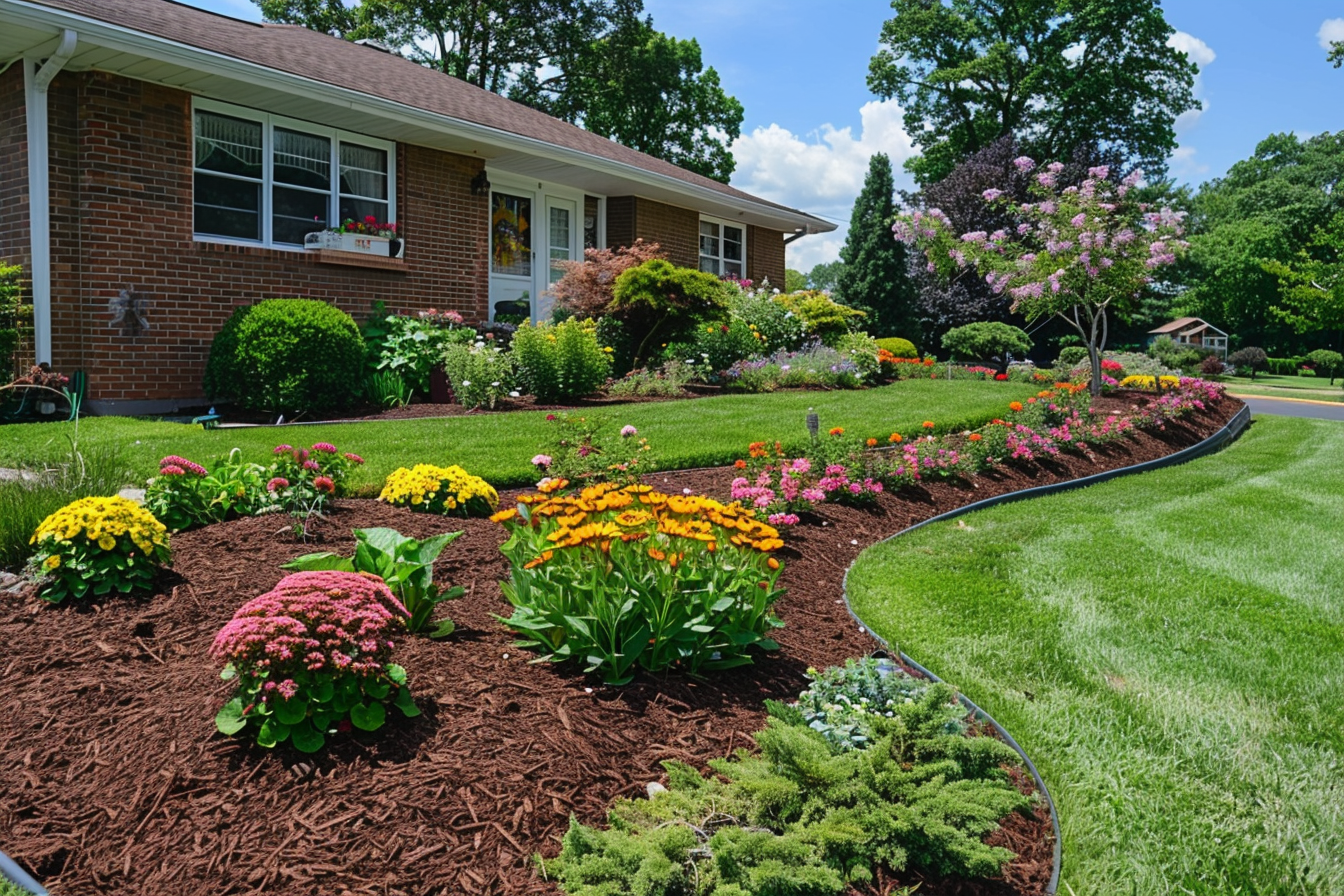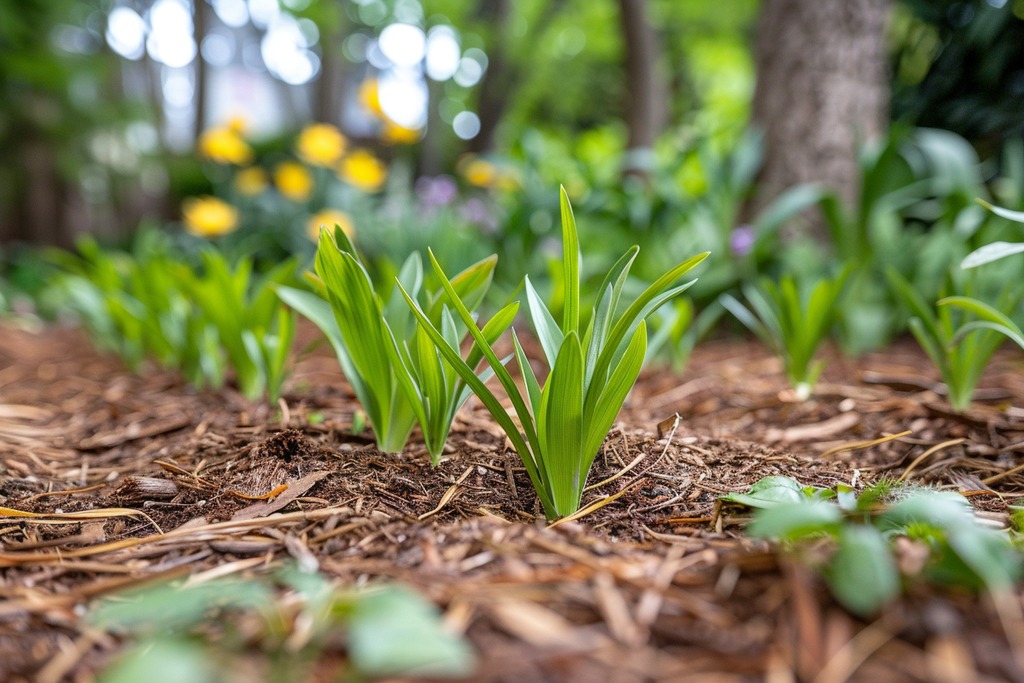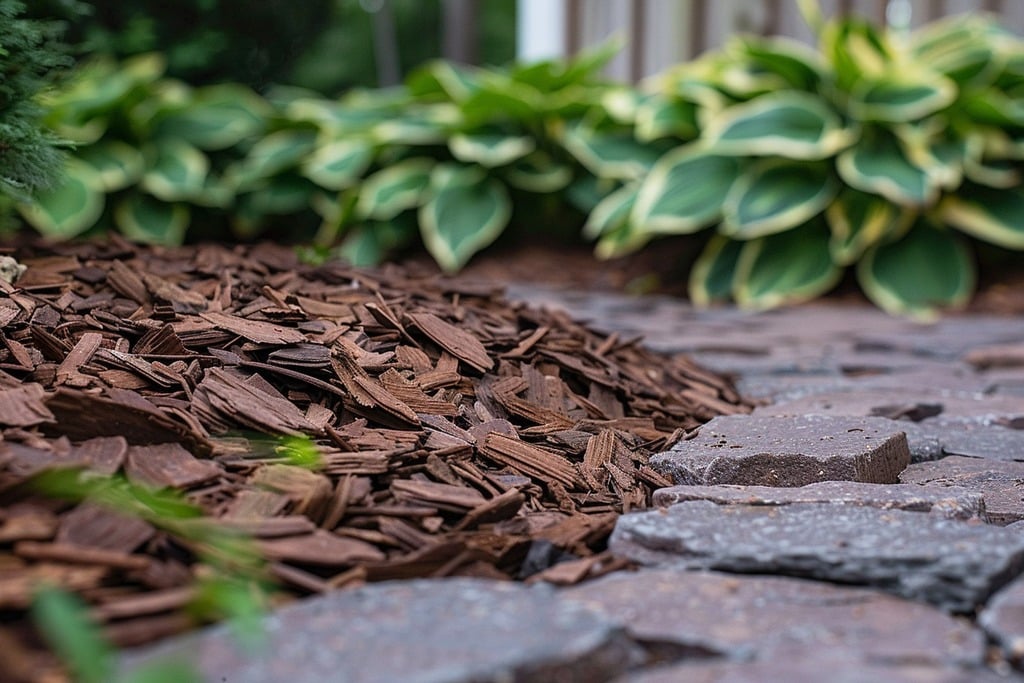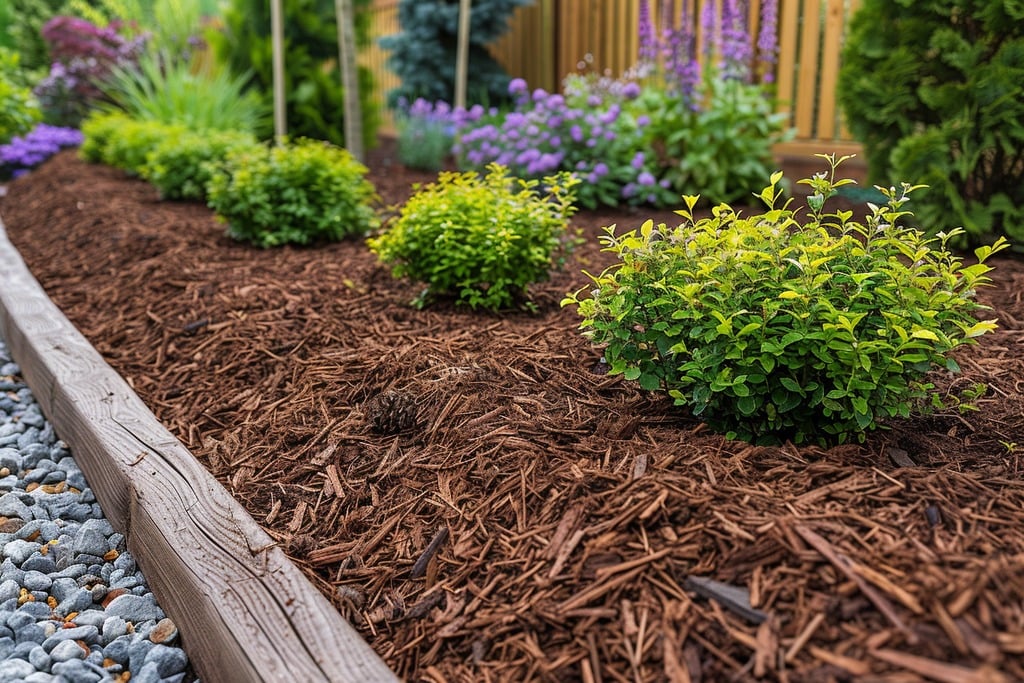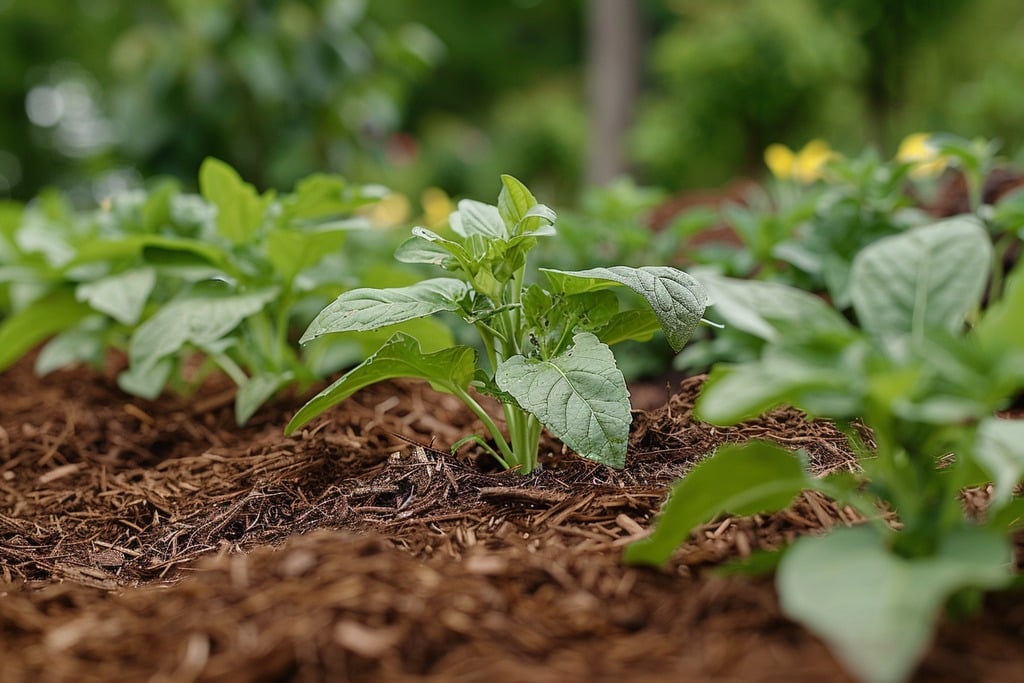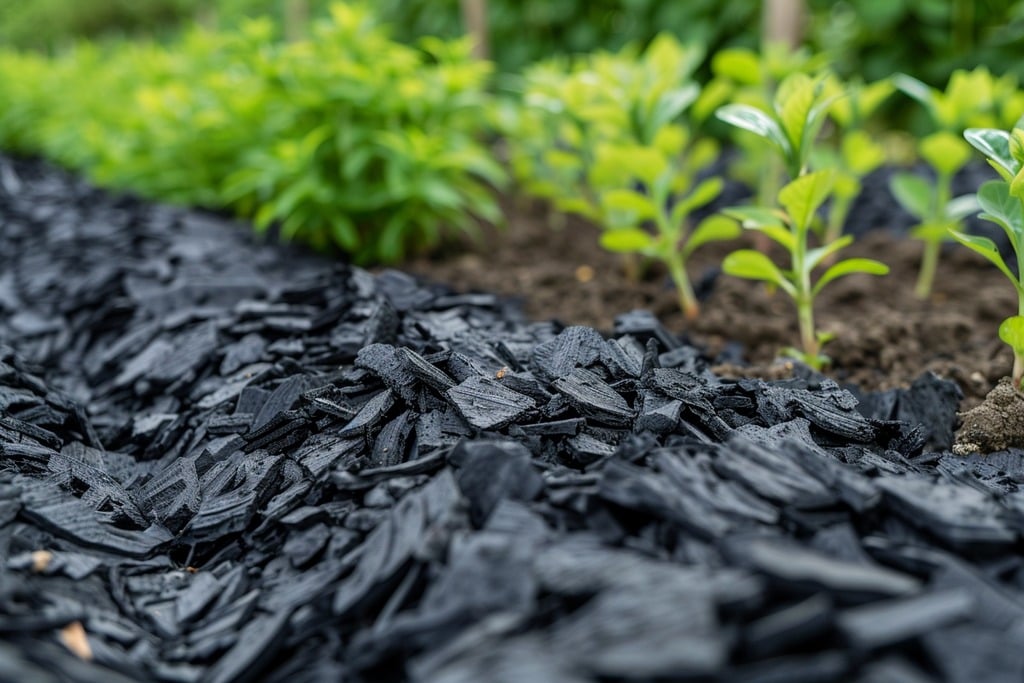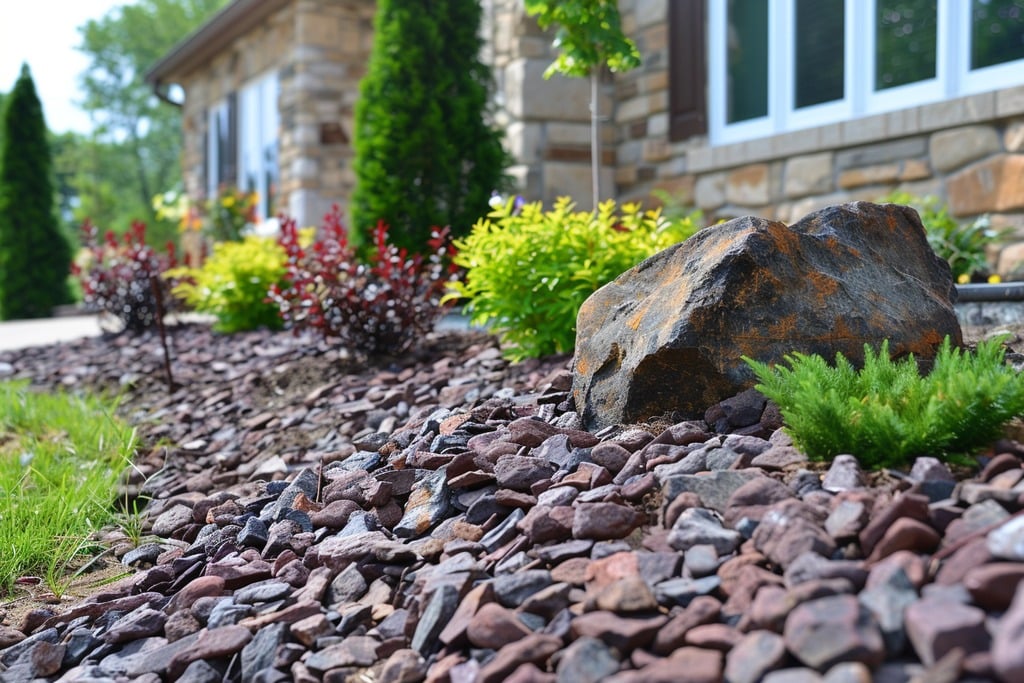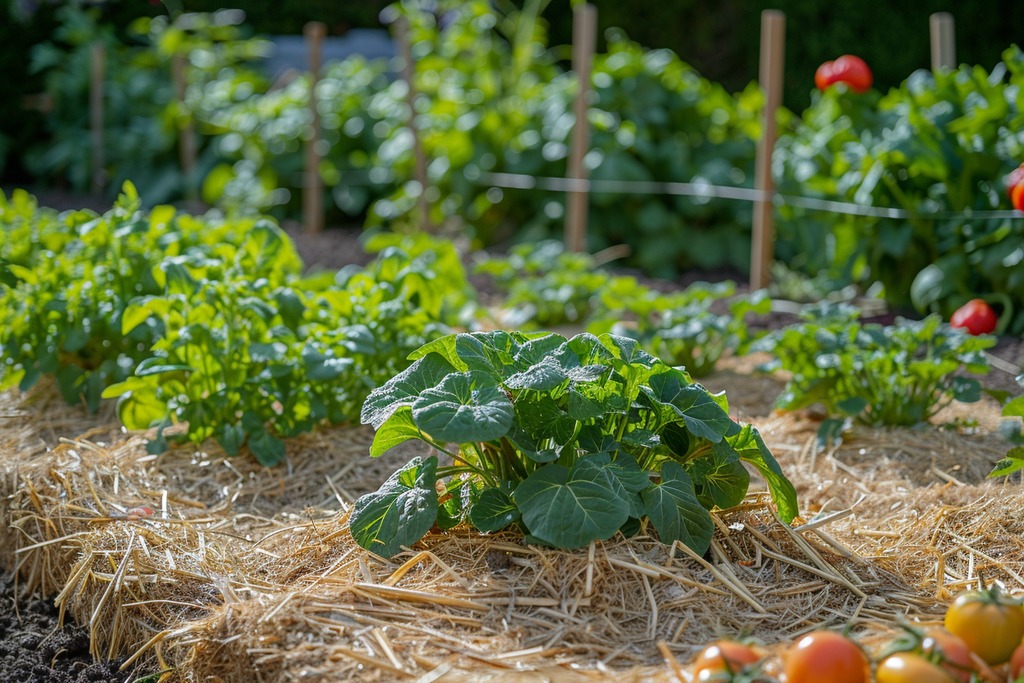Gardening along the coastal plains of North Carolina is a unique adventure, thanks to its distinct climate, soil, and environmental conditions. The right mulch can be a game-changer for your garden, offering benefits like moisture retention, soil temperature regulation, and weed suppression. But with a variety of options available, how do you choose the best one for your coastal garden? Let’s break down the top contenders and see how they stack up against each other.
Organic Mulches: A Natural Choice
Pine Straw: A local favorite, pine straw is readily available in the coastal plains and offers excellent coverage. It’s lightweight, easy to spread, and adds a natural acidity to the soil as it decomposes, benefiting acid-loving plants common to this region. However, pine straw draws out faster than other mulches, making it more flammable, so keep it away from fire pits and grills.
Hardwood Chips: Ideal for paths and ornamental gardens, hardwood chips last longer than most organic mulches. They break down slowly, enriching the sandy soil with organic matter. However, they can sometimes harbor unwanted pests if not sourced carefully.
Cypress Mulch: While cypress mulch is praised for its longevity and aesthetic appeal, it’s worth noting that the sustainability of cypress mulching has been a topic of debate. Ensure you’re sourcing from a responsible supplier to avoid contributing to the depletion of wetlands.
Eucalyptus Mulch: A less common but intriguing option, eucalyptus mulch offers a fresh scent that can deter pests. It decomposes at a moderate rate, providing a steady supply of organic matter to the soil.
You should also keep in mind that natural (undyed) organic mulch is the best way to go. As nice as dyed mulch looks, the cheaper versions are usually made from recycle woods that can be contaminated with chemicals that are harmful to your, beneficial bugs and insects, and your plants. If you want to use colored mulch, make sure you know where it’s coming from and that it’s made with quality dyes.
Inorganic Mulches: The Long-lasting Solution
Rubber Mulch: Made from recycled tires, rubber mulch is durable and offers exceptional weed control. However, it’s not the best choice for enhancing soil health, as it doesn’t break down or contribute organic matter.
Gravel and Stone: In coastal areas where salt spray is a concern, gravel and stone can be particularly effective. They won’t break down or change the soil’s pH, making them a low-maintenance option for paths and decorative garden areas. However, you need to be careful using gravel and stone near plants that won’t appreciate the reflective nature of the materials (i.e. reflected sun and heat may be too much for leaves).
Vegetable Beds Vs. Flower Beds
For vegetable gardens, organic mulches are the way to go. Straw—not to be confused with hay, which can contain seeds that lead to unwanted growth—stands out as a top choice. It’s inexpensive, easy to spread, and keeps the soil cool and moist, which is just what your veggies need to thrive. As it breaks down, straw also adds organic matter to the soil, improving its structure and fertility. Another fantastic option for vegetable plots is shredded leaves. They’re usually readily available in the fall, cost-effective, and provide a similar range of benefits to straw. Plus, they encourage beneficial earthworm activity, which is always a plus in a veggie garden.
Flower beds, on the other hand, can benefit from both organic and inorganic mulches, depending on the aesthetic you’re aiming for and the needs of your specific plants. The mulches mentioned above are all good options for flower beds. One other option is cocoa hull mulch. It is a favorite for flower gardens due to its fine texture and rich color that beautifully contrasts with vibrant blooms. It also emits a delightful chocolate scent when fresh. However, it’s important to note that cocoa hull mulch can be harmful to pets if ingested, so consider this if your furry friends roam your garden.
Choosing the Right Mulch
When deciding on the best mulch for your coastal plains garden, consider the specific needs of your plants and the overall goals for your garden. Organic mulches improve soil health over time but need replenishment as they decompose. Inorganic mulches require less maintenance but don’t enhance soil fertility.
Tips for Mulching in Coastal Plains Gardens:
- Check the pH: Coastal soils can be more alkaline due to the presence of shell material. Test your soil’s pH before adding any mulch that might alter it, especially if you’re growing acid-loving plants.
- Consider the Wind: In windy coastal areas, lighter organic mulches like pine straw may need to be anchored down or replaced more frequently.
- Water Wisely: While mulch helps retain moisture, over-mulching can prevent water from reaching the soil. Apply a 2-3 inch layer and ensure it’s not piling up against plant stems.
FAQs
Q: Can I use beach sand as mulch in my coastal garden? A: While tempting, beach sand isn’t ideal as mulch. It doesn’t retain moisture or suppress weeds effectively and can contribute to soil compaction.
Q: How often should I replace my mulch? A: It depends on the type of mulch. Organic mulches typically need replenishing every 1-3 years, while inorganic options like rubber mulch or stone can last for several years.
Wrapping It Up
Choosing the right mulch for your garden in the coastal plains of North Carolina is a balancing act of aesthetics, plant health, and environmental factors. By considering the unique challenges and benefits of each mulch type, you can create a thriving garden that’s as resilient as it is beautiful.
Happy gardening, and remember, the best mulch is the one that suits your garden’s specific needs and your personal commitment to nurturing the environment. Whether you opt for the natural elegance of pine straw or the enduring appeal of stone, your choice of mulch can make all the difference in your coastal garden.

